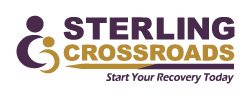Recovery from substance use disorder is a monumental achievement, but it’s just the beginning of a lifelong commitment to health and well-being. For individuals in Kentucky, staying on the path to recovery means finding the right balance of support, structure, and self-care. Whether you’ve just completed rehab or are long into your sobriety, these practical and compassionate tips can help you maintain your progress and thrive.
Recovery is not a solo effort. You can build a stronger future for yourself and your loved ones by leveraging community resources such as support groups and rehabilitation centers. Contact Sterling Crossroads in Mount Sterling, KY, to learn about our programs and services and how we can help you maintain sobriety after rehab.
What to do After Rehab: 8 Tips
1. Create a Structured Daily Routine
One of the challenges many people face after rehab is adjusting to life without the rigid schedule of treatment. A clear, structured daily routine helps fill the hours with purpose and creates stability, which is key to preventing relapse.
Start by organizing your day into meaningful chunks of activities. This could include
- Work
- Exercise
- Meal planning
- Therapy sessions
- Relaxation time
Staying productive helps keep your mind busy and focused on your goals. To get started, you can use simple tools like a planner or a phone calendar.
Remember that recovery takes intention, so prioritize activities that contribute to your mental, physical, and emotional well-being.
2. Build a Strong Support System
Recovery is never something you should face alone. Surround yourself with people who understand your challenges and support your commitment to sobriety. This can include family members, close friends, or groups like Alcoholics Anonymous (AA) or Narcotics Anonymous (NA), which have numerous local chapters across Kentucky.
Consider joining recovery-focused programs offered by places like Sterling Crossroads in Mount Sterling, KY. These programs often provide group therapy or peer-led sessions that give you practical advice and emotional comfort. Confide in those who share your values and encourage you to succeed in your sobriety; they will help you stay motivated on hard days.
3. Attend Regular Therapy Sessions
Therapy can be instrumental in maintaining your recovery. Rehab may have introduced you to counseling, but continuing regular sessions builds on the progress you’ve made. Individual therapy is essential for working through unresolved emotions or traumas that might trigger substance use.
Look into local resources, such as Sterling Crossroads’ offerings, where licensed counselors specialize in evidence-based practices designed specifically for individuals recovering from addiction.
4. Stay Connected Through Aftercare Programs
Aftercare programs are designed to provide ongoing support after rehab, which is crucial during the first few years of recovery when vulnerability is at its highest. These programs often include periodic check-ins, counseling sessions, and group meetings that keep your focus on personal growth.
5. Take Advantage of Kentucky’s Community Resources
Kentucky offers a range of programs and services for individuals in recovery. From substance use hotlines to nonprofit organizations, there are plenty of ways to find help outside of clinical settings. For instance, Kentucky residents can call statewide resources like the KY HELP Call Center to locate treatment facilities, sober living homes, or other forms of assistance.
Additionally, explore professional behavioral health specialists in your area that provide wellness programs, job training, or parenting classes. Sterling Crossroads is an example of an organization that emphasizes community by addressing issues like anger management and parenting classes alongside addiction recovery.
6. Adopt Healthy Coping Mechanisms
Learning new ways to handle stress is crucial after rehab. You might have relied on substances to cope in the past, but recovery involves discovering healthier alternatives that allow you to manage anxiety, frustration, or setbacks.
Consider mindfulness practices or physical activity—both are great options. Hiking in Kentucky’s scenic parks or walking through your local community can provide both physical benefits and a calming effect on the mind. Journaling your thoughts and feelings is also an excellent habit to nurture self-awareness and emotional expression.
7. Set Realistic Goals for the Future
Goal setting keeps you motivated in recovery while providing a sense of purpose. Start with small, achievable goals like attending weekly therapy or maintaining one month of sobriety. Gradually, aim for long-term objectives such as financial independence, advancing your education, or improving relationships with loved ones.
Breaking your goals into manageable steps makes them feel less overwhelming. For example, if your dream is to go back to school, start by researching colleges or filling out applications. Celebrate small victories along the way to stay positive and encourage growth.
8. Focus on Rebuilding Family Relationships
Recovery affects not only the individual but also their family. Rebuilding trust and communication is an essential part of the healing process. Open conversations with your loved ones about how they can support your recovery efforts and help restore harmony within the household.
Parenting classes or therapy sessions, like those offered at Sterling Crossroads, can provide valuable tools for fostering a healthier home environment. Remember, in Kentucky and beyond, strong families create strong communities. Your recovery benefits everyone around you.
Contact Sterling Crossroads Today
Recovering from substance use disorder is an ongoing process that requires dedication, support, and a proactive mindset. By focusing on these eight steps, you can build a life filled with purpose, connection, and joy. Remember, you are not alone on this path. Kentucky is home to compassionate resources and professional addiction treatment centers like Sterling Crossroads, which are committed to helping you achieve and maintain sobriety.
Contact Sterling Crossroads online or by calling 888.991.1476 today. Stay connected, stay determined, and lean into the support around you—for yourself and the ones you love.

